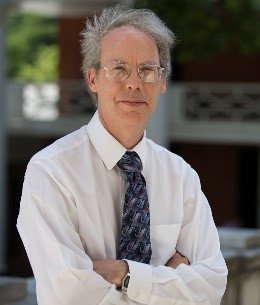An International Meeting “Black Hole Accretion and AGN Feedback” to be held in SHAO
In July 1 – 5, 2015,an international meeting “Black Hole Accretion and AGN Feedback”, organized by Shanghai Astronomical Observatory (SHAO) of the Chinese Academy of Sciences (CAS), will be held in Shanghai. This conference is co-chaired by Prof. Feng Yuan (the director of the Research Center for Galaxies and Cosmology), Prof. Luis C. Ho (the director of the Kavli Institute of Astronomy and Astrophysics in Peking University) and Prof. Jerimiah Ostriker from Princeton University. About 150 astronomers will attend this conference. The website of this conference is http://accretion2015.csp.escience.cn/dct/page/1.
Why do astronomers want to hold this conference? What will this conference focus on? Are there any stories to be shared with the public during/after this meeting? With such questions, the Science Communication Office of the SHAO has an interview with Prof. Yuan Feng.
What is black hole and black hole accretion?
Black holes are mysterious but ubiquitous objects in the universe. Black hole accretion, as a basic physical process, describes how a black hole swallows its surrounding materials. During the falling of the gas, its gravitational energy is converted into the internal energy thus strong radiation is emitted.
This conference will focus on black hole accretion and feedback, which are surely important. Can you explain in more detail how important black hole accretion is?
First, black hole accretion is believed to be the key theory behind the Active Galactic Nuclei (AGN), gamma ray bursts (note: the most energetic events in the Universe besides the Big Bang itself), X-ray binaries (note: a binary system consisted of a black hole and a star), and so on. Second, accretion theory also plays crucial role in the fields of star formation and planet formation.
Because of the importance and ubiquity of black hole and accretion theory, the Shaw Prize (which is regarded as “Oriental Nobel Prize”) were awarded to three astronomers working on the area of the black hole and accretion in 2008 and 2013.
What about feedback?
In observations, astronomers have found that there is a strong correlation between black hole masses and the properties of their host galaxies. One commonly accepted explanation is AGN feedback. On one hand, black hole accretions are able to cause the matter outflow and radiation, which will in turn interacts with the interstellar matter in the host galaxy and influence the galaxy evolution. On the other hand, properties of interstellar matter will also influence black hole accretion and growth. That’s one way to explain the observed correlation.
However, how does feedback work still remains unsolved, and is poorly understood.
Why will this conference be held in Shanghai?
I would say it is honor for us, the SHAO to organize this conference. What’s more, many well-known astronomers in the related areas will attend it. Why? One of the reasons, I guess, is that during the past years, SHAO researchers and their collaborators have done important research work in this field and made creative contributions. It has kind of settled a footstone for this conference. Another more important reason is that we hope to bring experts in both the black hole accretion and galaxy formation/evolution communities, to share their expertise, so as to improve our understanding of the physics of AGN feedback. We also hope to attract more Chinese astronomers to this poor-understood area. The last but not the least, people would like to know more about China.
What will the experts discuss during the conference?
The experts will discuss the following 5 topics:
1. Theory of black hole accretion and radiation;
2. Theory of jet and wind production;
3. Observations of winds, jets from black holes in AGN and X-ray binaries;
4. Interaction between black hole outflows and the ISM;
5. Galaxy evolution and central black hole feedback.
Are there any stories to be shared with the public during/after this meeting?
Astronomers are always happy to share their new findings with public. We have to rely on you guys. During and after this conference, we would introduce more basic knowledge to public about black hole accretion and AGN feedback. Besides, we would like to introduce to the public several well-known astronomers with tons of inspiring stories, i.e., Jerimiah Ostriker, Andy Fabian and Ramesh Narayan.
[Details]

Jerimiah Ostriker, is a Charles A. Young Professor Emeritus in Princeton University, a Senior Research Scholar in Princeton University, a Professor of Astronomy in Columbia University. He is important in advocating a new model for galaxies where there is much larger portion of invisible dark matter than visible normal matter. He also worked in the development of sophisticated numerical simulations of the evolution of the early universe and the formation of structure in cosmology. What’s more, he is active in investigating the interaction between black holes and their environments. Because of his extraordinary scientific achievements and influences in science, he was awarded lots of honors and medals, such as the U.S. National Medal of Science in 2000, the Royal Astronomical Society Gold Medal in 2004, the Chinese Academy of Sciences Einstein Professorship in 2009, and so on.

Ramesh Narayan is the Thomas Dudley Cabot Professor of the Natural Sciences at Harvard University and a Senior Astronomer at the Smithsonian Astrophysical Observatory. He is a world leading expert in the theory of accretion disks, gravitational lensing, gamma-ray bursts, neutron stars, and black holes. For his contribution to the hot accretion model, he was elected to the Royal Astronomical Society and the National Academy of Science.

John F. Hawley, is a professor of astronomy in the University of Virginia, the associate Dean for the Sciences in the college of Arts and Sciences. His research interests include accretion disks and related phenomena. For his contribution to the understanding of the accretion disks, he was jointly awarded the Shaw Prize in Astronomy with the University of Oxford astronomer Steven Balbus. Shaw Prize is an international award in area of sciences, which is considered as the oriental Nobel prize.
Download attachments:


